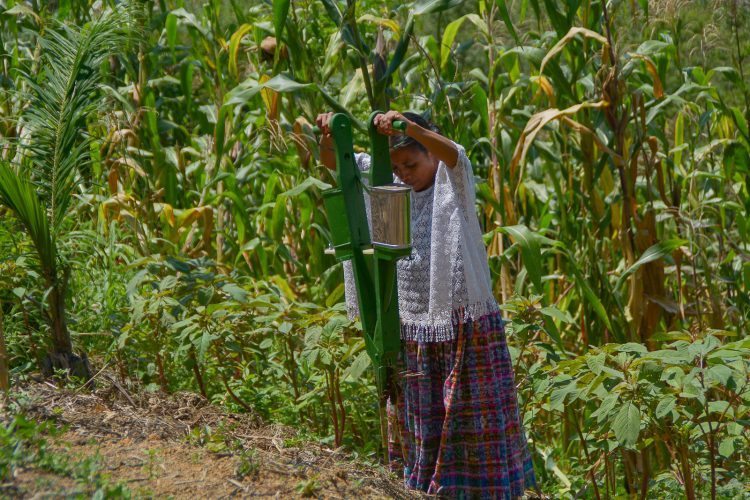This policy, signed by the Social Cabinets of Central America and the Dominican Republic with the support of the EU and the FAO, will contribute from the regional to the achievement of the 2030 Agenda in each country.

Foto: Agricultora Indígena de Guatemala (FAO)
25 years after the signing of the Central American Social Integration Treaty (TISCA), within the framework of the 73rd Ordinary Meeting of the Central American Social Integration Council (CIS), the Ministers of the different Social Cabinets of the SICA region approved the Policy SICA Regional Integral Social 2020-2040: Integrating through Social Inclusion (PSIR-SICA) and the monitoring indicators for the strategic goals of said policy, as an input to support the implementation of the Regional Monitoring and Monitoring Mechanism of this instrument.
“Our people are on a par with all the fraternal peoples of Central America in this struggle to recover again. Working closely with the population is the reason for our work. We appreciate the support of our partners such as the EU EUROsociAL+ Programme and FAO who have always accompanied us in this process,” stated Guillermo González, Minister-Director of the National System for the Prevention, Mitigation and Attention of Disasters and President Pro Tempore of the CIS for the Republic of Nicaragua.
The PSIR-SICA, with a medium and long-term vision, complements and strengthens other national and regional policies, strategies, agendas and social programmes; in particular the Regional Intersectoral Agenda on Social Protection and Productive Inclusion with Equity 2020-2030 (ARIPSIP), being in turn an instrument that seeks to support at regional level the achievement that each member country carries out with the aim of meeting the 2030 Agenda, compliance with which is at serious risk due to the negative effects of the COVID-19 pandemic.
“At a time when all the countries of the world face challenges of generating tools to face the impacts of the pandemic and the effects of climatic events are more intense, Regional Policy is a clear message of priority given by countries to reduce structural aspects that deepen inequalities throughout the region, an opportunity to place the importance of social protection and productive inclusion mechanisms at the centre of the debate, in an increasingly complex scenario that we are facing,” said Luiz Beduschi, Policy Officer, in representation of the Subregional Coordinator for Mesoamerica and Representative for Panama and Costa Rica of the FAO.
This policy was reviewed in light of the lessons left by the pandemic and comprises an axis that links the social implications of climate change, seeking to support the creation of resilience in the Central American population; places the human being at the center and is characterised by unrestricted respect for human rights and seeks to reduce inequality in all its manifestations, particularly gender and territorial inequalities, access to habitat, adequate housing and basic social services, especially in the areas of education and health.
“The pandemic affects the whole world, we have not had a truly global phenomenon for 70 years. PSIR-SICA is a key tool to emphasise common issues and interests, where collaboration between countries will allow more effective solutions and a logic of economies of scale,” commented Francesco Chiodi, Coordinator of the Social Policies Area of EUROsociAL+.
Likewise, the Council recognised the support provided by the Food and Agriculture Organization of the United Nations (FAO) in the formulation of this instrument, a body that has accompanied the actions of this Council in matters of social protection and has favoured the intersectoral approach of social issues. Likewise, he thanked the support and contribution of the European Union Programme for Social Cohesion in Latin America EUROsociAL+, carried out through the Axis of Social Policies; and invited to continue supporting its implementation.
For their part, the Ministers highlighted the importance and centrality of the social dimension of the integration process and invited development partners to take the PSIR-SICA as a reference, as a reflection of the joint will of the countries to advance towards the achievement of a more inclusive region with social welfare.
“As a Secretariat, we express our commitment to comply with the instructions provided by the Council, for the dissemination of the instrument with regional bodies and development partners, the sum of efforts and the creation of synergies that contribute to the implementation and achievement of the goals raised,” commented Alfredo Suárez, SISCA Representatives.



